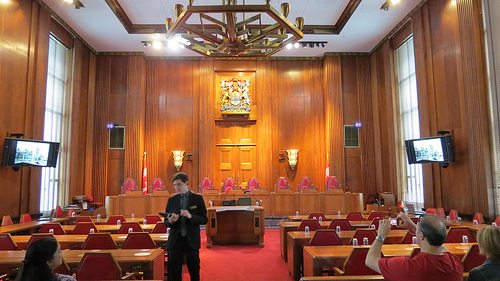Unreasonable Delay: New Precedent Setting Case from Supreme Court

The Supreme Court of Canada just released their reasons in a case called The Queen v. Jordan 2016 SCC 27. Mr. Jordan had been charged in the lower mainland with a number of very serious drug offences. He had argued at trial that his right to a speedy trial had been breached. The trial judge disagreed and dismissed the application for a stay of proceedings.
The Supreme Court of Canada reversed the trial decision and ordered that the proceedings be stayed effectively killing the case and letting Mr. Jordan walk free. The Supreme Court criticized the Canadian criminal justice system for the way it has come to tolerate and rationalize enormous delays in bringing accused persons to trial:
Our system, however, has come to tolerate excessive delays. The circumstances in this appeal are illustrative. Notwithstanding a delay of over four years in bringing a drug case of modest complexity to trial, both the trial judge and the Court of Appeal were of the view that the appellant was tried within a reasonable time. Their analyses are reflective of doctrinal and practical difficulties plaguing the current analytical framework governing s. 11(b). These difficulties have fostered a culture of complacency within the system towards delay.
Since the advent of the Charter of Rights and Freedoms people in this country have had the constitutional right to have their trials heard within a reasonable time. Since the 1980’s courts were required to look to whether or not a person was able to prove that they were prejudiced by the delay. Sometimes this would be done by way of actual evidence from the accused person attesting to all the serious difficulties the delay has caused them, while other times prejudice was inferred because of the sheer length of the delay.
The Supreme Court completely changed this approach with this case. Going forward, all cases tried within the provincial court system must be heard and completed within 18 months of the charge being laid. Cases in the superior court system must now be completed within 30 months of the charge being laid. If the delay in concluding the case exceeds these limits the delay will be presumptively unreasonable and the onus will be on the Crown to justify the delay by establishing that there were exceptional circumstances justifying the delay. What constitutes and exceptional circumstance will be if the case is abnormally complex or if a discrete event such as an unexpected illness caused the delay. Importantly, an unjustified delay over the presumptive ceiling will always result in a stay of proceedings even if there is no evidence of prejudice. To this point the Supreme Court said this:
To be clear, the presence of exceptional circumstances is the only basis upon which the Crown can discharge its burden to justify a delay that exceeds the ceiling. As discussed, an exceptional circumstance can arise from a discrete event (such as an illness, extradition proceeding, or unexpected event at trial) or from a case’s complexity. The seriousness or gravity of the offence cannot be relied on, although the more complex cases will often be those involving serious charges, such as terrorism, organized crime, and gang-related activity. Nor can chronic institutional delay be relied upon. Perhaps most significantly, the absence of prejudice can in no circumstances be used to justify delays after the ceiling is breached. Once so much time has elapsed, only circumstances that are genuinely outside the Crown’s control and ability to remedy may furnish a sufficient excuse for the prolonged delay.
If you have questions about Criminal Law proceedings or if you have been criminally charged in British Columbia, contact Julian van der Walle immediately.
Photo by Bob Linsdell 
Related Stories
Does drug addiction cause more crime?
Many in Canada often associate drugs with crime, and in many cases, the possession or use of drugs is itself a crime. More recently, a spotlight has been placed on drug-related incidents due to the opioid crisis afflicting the nation. Sociologists have spent...
Why You Should Hire a Vernon Criminal Defense Attorney
As a whole, the Canadian justice system is very fair. The accused enjoy the right to be present and be heard in court, the right to remain silent, and the right to representation by legal counsel. That last right is one of the most important rights of all. This...
Bad IRP Decision? What Can You Do About It?
Bad IRP Decision? What Can You Do About It? Drivers who are caught driving under the influence by the police may receive an Immediate Roadside Prohibition (IRP) on driving. An IRP is a temporary driving suspension that prevents the recipient from driving for a...
REQUEST A FREE CONSULTATION
Call 1.877.212.9645
Or fill out the form below to receive a free and confidential initial consultation.
